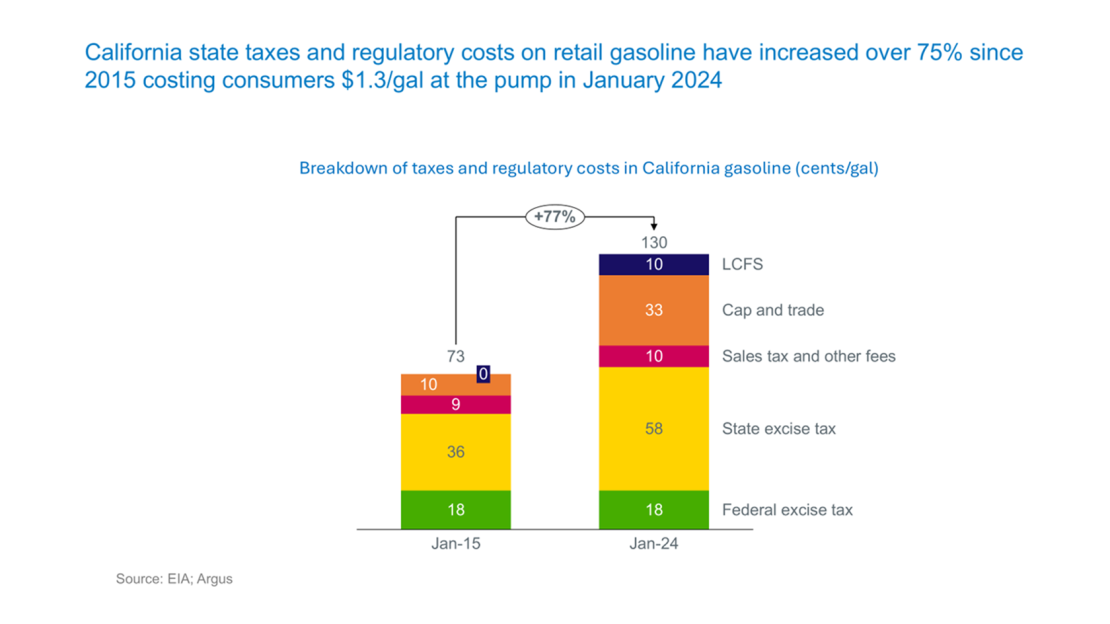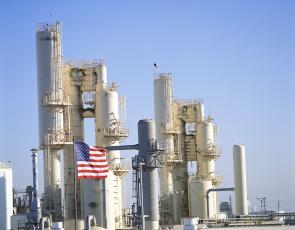WASHINGTON, D.C. — American Fuel & Petrochemical Manufacturers (AFPM) President and CEO Chet Thompson issued the following statement on today’s vote by the California Air Resources Board (CARB) amending the state’s Low Carbon Fuel Standard (LCFS):
“California continues to deliver a master class in ‘what not to do’ if a state wants to lower costs and make energy more affordable for consumers. Governor Newsom, state politicians and regulators know that ratcheting up the LCFS will make it more expensive to produce and supply fuel in California. Numerous studies—including one they tried to bury—make this abundantly clear, suggesting gasoline costs could increase as much as 37 to 85 cents per gallon by 2030 because of changes to the LCFS. The irony of today’s CARB vote is that it doubles down on a policy everyone knows will raise costs, and it does so just weeks after California convened a special session focused on price relief.”
Additional information:
- According to the California Energy Commission, state taxes, regulations and environmental programs contribute to California’s often nation-leading gasoline prices.
- Since 2015, the portion of California fuel costs attributable to taxes, fees and policy has jumped 77% (see image below).
- Numerous studies recognize that amending the LCFS is likely to raise costs:
- A study from the University of Pennsylvania’s Kleinman Center for Energy Policy projects retail gasoline prices could increase $0.85 per gallon by 2030 under the amended LCFS (pages 4, 15, 18).
- CARB’s original analysis suggested gasoline prices could increase $0.37 per gallon and diesel $0.47 per gallon next year because of LCFS (page 64).
- Stanford researchers say the combination of LCFS amendments and changes to the California cap and trade program could raise gasoline prices more than $1.50 per gallon by 2030 (page 6).
- The non-partisan California Legislative Analyst’s Office notes that LCFS functions as “an implicit tax on fuels,” and “most or all of the costs…are likely passed on to fuel consumers in the form of higher retail prices.”
The American Fuel & Petrochemical Manufacturers (AFPM) is the leading trade association representing the makers of the fuels that keep us moving, the petrochemicals that are the essential building blocks for modern life, and the midstream companies that get our feedstocks and products where they need to go. We make the products that make life better, safer and more sustainable — we make progress.



